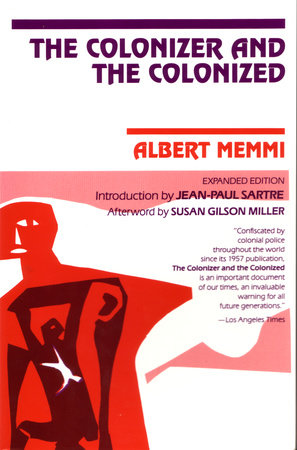"Decolonization is the process by which a colony gains its independence from the colonizing nation in order to become an autonomous country. Colonization, a concept used in many contexts, usually refers to the long-term dominance of a people and geographic territory by a more powerful group from outside. This dominance by one nation over others may take various forms—some more lenient than others—involving the imposition of a government, military force, economy, culture, education, religion, and technology. One of the characteristics of colonization is the creation by colonizers of a dependency—educational or economic, for example—among the dominated group. The process of decolonization may be only partial or may involve more than severance of political independence, as a former colony must undergo the long process of becoming free from dependency and suffer the impact of decades—or centuries—of economic, military, cultural, and other forms of oppression…
New cultural paradigms involve recognizing and moving away from cultural hegemony—the pervasive influence of one culture over another—in order to create authentic and original work. These transformative social movements operate within a multicultural and pluralistic paradigm that covers the arts, cultural industries, mass media, and academic arenas. From it came the celebration of languages, literature, music, and other ways of expressing the world that, until then, had been relegated to the margins. Academic theoretical fields have been developed to study social dynamics occurring in formerly colonized territories and oppressed communities. Examples of such academic areas would be multiculturalism, postcolonialism, and decolonialism, which intersect many academic disciplines. Most experts agree that decolonization remains an ongoing process."
Mercadal, T. (2021). Decolonization. Salem Press Encyclopedia.
[Note: We are working to improve access to our collections and revising our subject headings to be more respectful and inclusive. Please be aware that you may see certain words or descriptions in search results or library materials which reflect the author’s attitude or that of the period in which the item was created and may now be considered offensive.]
Examples of Subjects in the Library Catalogue:
Databases are collections of different types of sources (usually digital) such as:
Here are a few relevant databases when looking for information related to Decolonization.
For more information on types of sources (including scholarly articles), please review our Evaluating Sources LibGuide.
The following strategies can be useful to help you search for and choose an academic/scholarly research article:
1. Analyze your topic statement for search terms
2. Connect different concepts with "AND"; connect similar (or synonymous) concepts with "OR" You also need to use quotation marks to search complete phrases.
e.g. Decolonization AND Canada
e.g. Decolonization OR Postcolonial
e.g. "Decolonization Canada"
3. Use limiters (options on the left or right side of the search results) to narrow your results list such as publication dates, peer-reviewed, and full text.
4. Be sure to read the abstracts - they will often reveal enough "clues" to tell you if the article is relevant or not.
5. If you do not find articles that interest you, look at your results. See if there are new words or new search terms that you can use that will help you improve your search.
 Colonizer and the Colonized
by
Albert Memmi; Howard Greenfeld (Translator)
Colonizer and the Colonized
by
Albert Memmi; Howard Greenfeld (Translator)
© , University of the Fraser Valley, 33844 King Road, Abbotsford, B.C., Canada V2S 7M8

